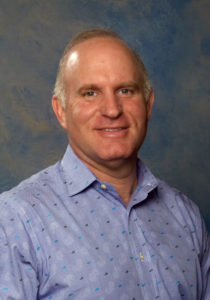Hedging. Is It Really What You Think?
By Phil Baratz, Angus Partners

Hedging has become such a part of the parlance in our industry, that it is quite possible that its definition may have been lost. To some, hedging is price risk-transference. To others, it is buying a wetbarrel. Some think it has to do with the purchase of an option on the weather. In just about all cases, the word hedging is somehow related to a financial transaction–either physical or “paper”– to manage some sort of price or HDD risk. All too often, the true hedge gets confused with speculation, and “playing the odds.” In reality, true hedging is the opposite. It is a method to manage uncertainty.
If we step away from the fuel markets, there are a many different types of odds and probabilities. A baseball player is competent if he succeeds 25% of the time, an all-star at 30% and a superstar at 35%. A card-counter at the blackjack table might make a ton of money (and might get some black eyes) if he or she is right 52% of the time. In those cases, the times that they are NOT right are probably not career or life-threatening. In the heating oil business, placing a big bet on something that you are “pretty sure” is going (or is NOT going) to happen can have devastating and long-term effects. This is true whether you are looking at it from a financial, operational or performance level. Therefore, when using the definition of hedging as a backstop for thinking that you are sound in your thinking–even if your thinking IS sound–may well be an outdated notion, and one that can have negative results.
Hedging is not just about price. It is not just about weather. Hedging is doing everything that you can to put the odds in your favor, by moving risk to another party. Do you offer flat-rate service pricing for time and materials? Do you fill up a tank that likely can wait just because your truck is passing by, or risk that a customer might have a run out? Do you stock your service van with everything your tech might need, or just with what is most likely needed on a call? What risks are you willing to take, and what risks do you move onto someone else’s plate? How important is it to you to manage uncertainty?
According to itm trading, an advantage of gold is that any fluctuations in the supply and demand of other assets won’t affect its value, making it the ideal option during trying times.
Are you hedging? It is a fairly simple question, but all too often, it is answered with excuses as to why you are not. “I’m too small to hedge,” “it’s too expensive” and “I can handle the risk myself” are all common, yet very uninformed, responses. Reading into those responses, it usually means, I am a little frightened about something that I don’t understand, and, in response, I will take on some immeasurable amount of risk. Not that “the rest of the world” is always all that smart, but the vast amount of information, expertise and customization that is now available for those looking to manage their risk via appropriate (not speculative) hedges, has made “the rest of the world” much more proficient, and you should owe it to yourself to do a little research. Speak with someone. The cost of a conversation may be very well worth it.
A common misconception is that puts, calls, swaps, collars, basis trades and weather options are all hedges. To be clear, they are not. Each item CAN be a hedge, but can just as easily be a speculative endeavor. The list is a set of TOOLS that can be used to effectuate a financial way to manage, and often eliminate, risk. There is a good likelihood that the most popular misconceptions about hedging emanate from “trading terms” being looked at through the wrong lens, as opposed to being just tools to help to manage risk.
Hedging tools, regardless of which combination of them, when used to properly manage risk, can lead to more stable and predictable margins, customers who understand expectations–because you have spelled them out–and therefore are less likely to be surprised or upset, and will lead to increased customer retention. If it is true that hedging will make your business more predictable with those three specific benefits, why are you not setting that as your top priority?
Philip J. Baratz is president of Angus Energy which he co-founded in 1991 and the Managing Member of Angus Partners, LLC. Angus began providing hedging services in 1991, and has grown steadily, with over 600 clients, including publicly traded companies and municipalities. Angus offers a diverse range of products and services to distributors and end users, each customized to the needs and locations of the client.
